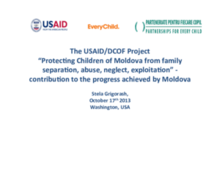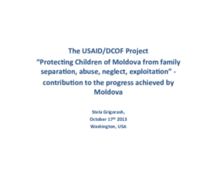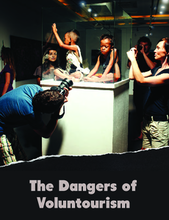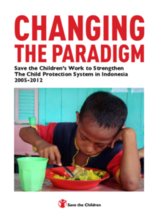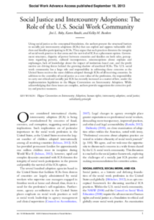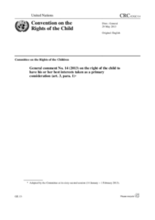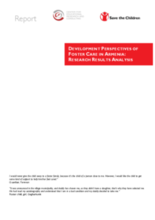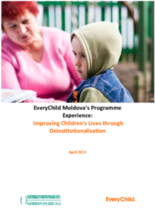Displaying 91 - 100 of 191
The first of two important presentations by Dr. Stela Grigorash, the Director of Partnerships for EveryChild Moldova, on the important work and lessons learnt in reforming the care system in that country.
The second of two important presentations by Dr. Stela Grigorash, the Director of Partnerships for EveryChild Moldova, on the important work and lessons learnt in reforming the care system in that country.
In this article for Prism Magazine, a publication of Evangelicals for Social Action, the authors ask challenging questions about the role of 'orphanage tourism', where Westerners visit or volunteer to work at a residential care center (orphanage) in the developing world, whether the trip is arranged by a tour or travel company, a nonprofit, or by a church.
Responsibletravel.com, a travel company operating from the UK since 2001 has issued Guidelines for partner operators for volunteering directly with vulnerable children, including in the context of orphanage volunteering.
This report documents the work conducted by Save the Children in collaboration with the Indonesian Ministry of Social Affairs over a period of 7 years to strengthen the national child protection system and change the underlying paradigm for that system away from over-reliance on residential care and towards child and family centered responses.
Using social justice as the conceptual foundation, the authors present the structural barriers to socially just intercountry adoptions (ICAs) that can exploit and oppress vulnerable children and families participating in ICAs. They argue that such practices threaten the integrity of social work practice in that arena and the survival of ICA as a placement option.
This paper provides details of research into the gatekeeping system in Bulgaria for children under three and examples from recent Bulgarian and international practice. It suggests that gatekeeping could benefit from a social development orientation including activities to combat poverty and promote social inclusion through supporting community and family strengths.
General Comment 14, issued by the Committee on the Rights of the Child, refers to article 3, paragraph 1, of the Convention on the Rights of the Child that asserts the right of the child to have his or her best interests taken as primary consideration in all actions or decisions that concern him or her (in both the public and private spheres).
This report produced by the Center for Educational Research and Save the Children summarises a broader research study which examined the foster care pilot programme introduced in Armenia in 2005. The study aimed to find out if the pilot program succeeded, what problems arose, how the program could be improved and how foster care in Armenia could develop and expand effectively.
This Program Review documents the evolution of EveryChild/Partnerships for Every Child’s Program in Moldova since 1994, presenting the development of interventions to improve the lives of children through deinstitutionalization and identifying the best practices and lessons that may be relevant, useful, and replicable to other initiatives and organizations around the world.

